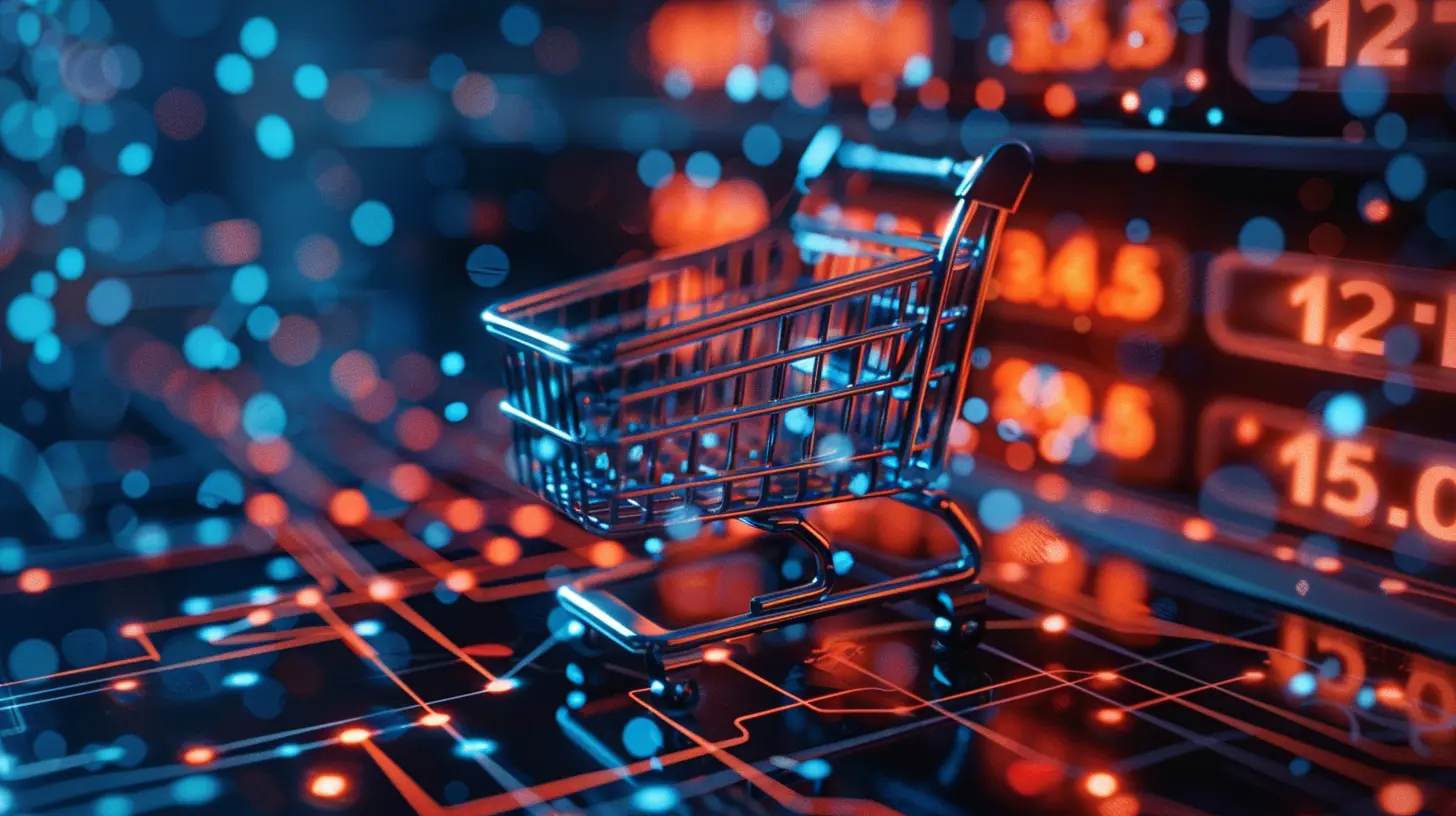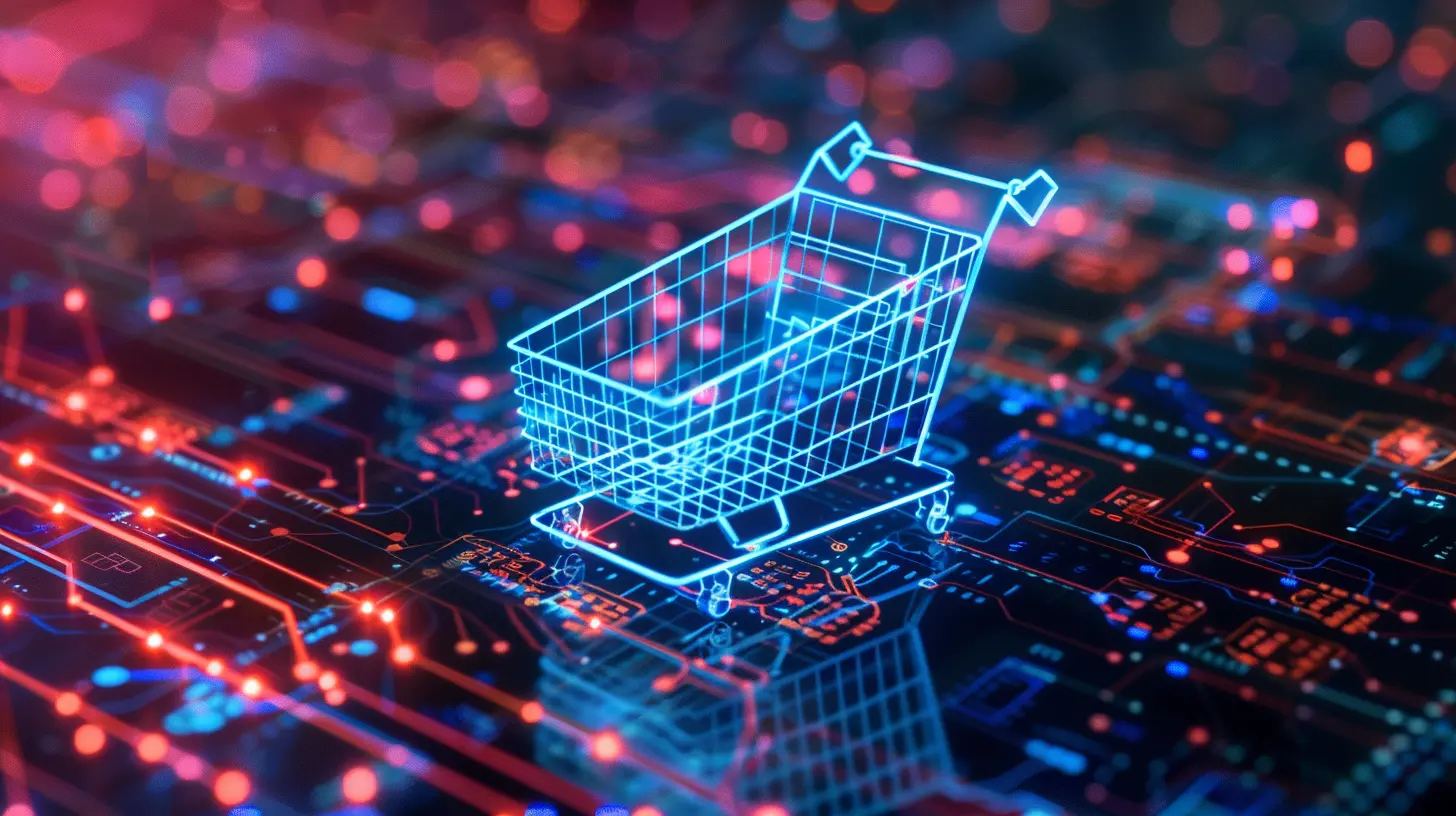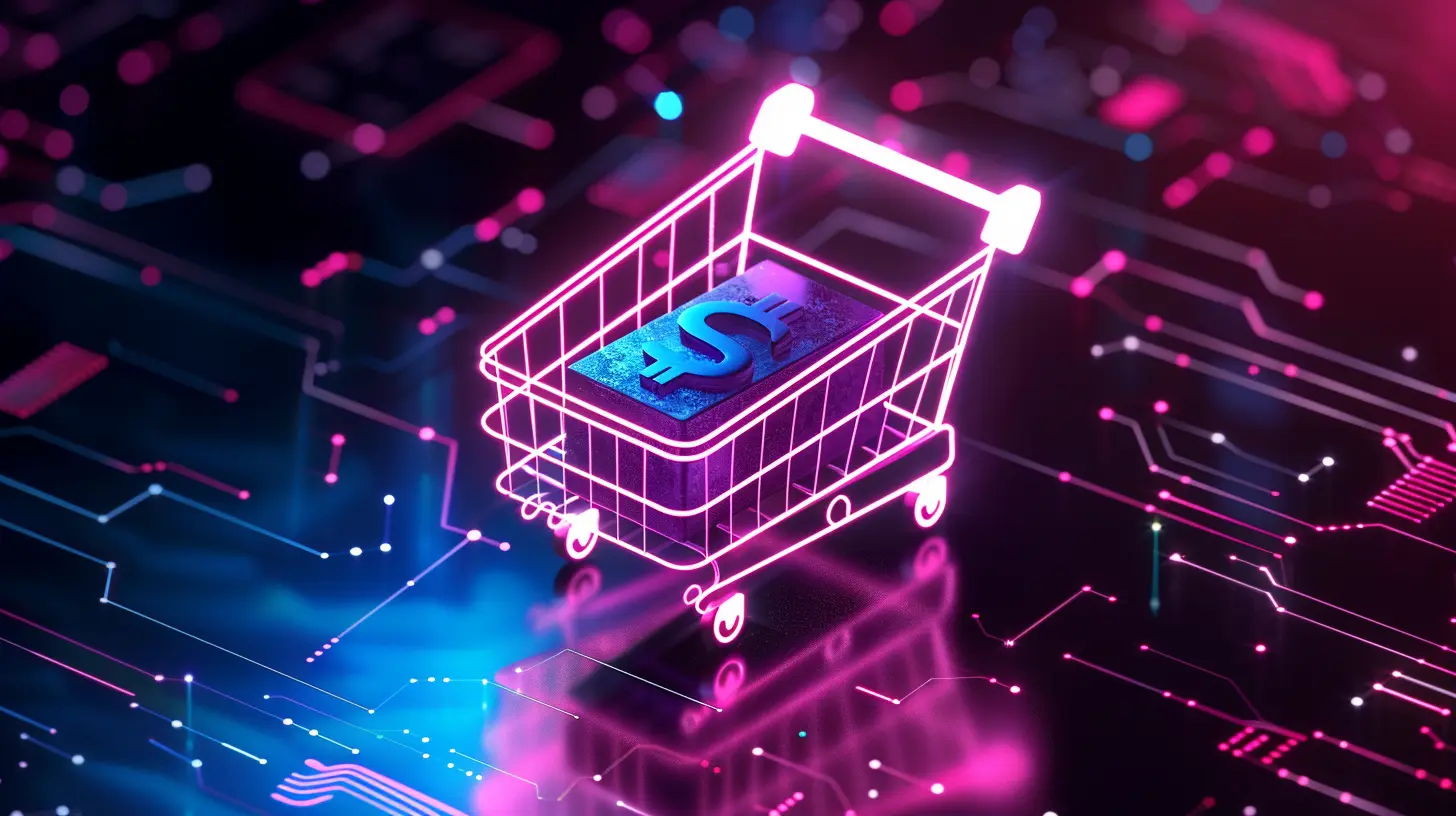The Role of Blockchain in E-Commerce Security
1 October 2025
In today’s fast-paced digital world, where online shopping is king, ensuring security has become just as important as offering the best products. From major retailers to small dropshipping businesses, e-commerce platforms are constantly fighting off threats — data breaches, payment fraud, identity theft... you name it. But what if there was a game-changing technology that could flip the script on security flaws?
Enter blockchain — the technology that started with Bitcoin but is now shaking things up across practically every industry. It’s not just for crypto nerds anymore. It’s becoming a powerhouse tool in redefining how e-commerce handles data, transactions, and trust.
So, let’s dive into the fascinating world of blockchain and how it’s transforming security in the ever-evolving e-commerce space.
📦 Why E-Commerce Security Is Non-Negotiable Today
Before we jump into blockchain, let’s set the stage.E-commerce is booming. Shoppers are spending trillions online, and it's not slowing down anytime soon. But here’s the kicker: with great growth comes great risk. Let’s be honest — cybercriminals love e-commerce platforms. And why wouldn't they? These platforms are gold mines for valuable data like credit card numbers, personal info, and purchasing history.
Still skeptical? Here’s what e-commerce platforms are up against daily:
- Phishing attacks targeting login credentials
- DDoS attacks that crash e-commerce sites
- Man-in-the-middle attacks during payment processing
- Fake product listings and transaction fraud
- Customer data breaches that cost millions in damages (and trust)
Yikes.
So where does blockchain step in? Buckle up.
🔗 What Exactly Is Blockchain (In Human Terms)?
Let’s simplify it. Think of blockchain as a digital notebook. But not just any notebook. It's shared across thousands of computers around the world. Every time you make a transaction, a new “entry” (block) is written in the notebook, timestamped and locked in place — and everyone has a copy.That means:
- Nobody can alter the past entries without everyone noticing.
- There's no single company or government controlling the ledger.
- Once something’s recorded, it's there forever — no take-backs.
It’s transparent, decentralized, and ultra-secure by design. That’s what makes it a perfect match for e-commerce’s biggest security headaches.
🛡️ Blockchain's Superpowers in E-Commerce Security
Now let’s break down exactly how blockchain is revolutionizing e-commerce security like a superhero with a digital cape.1. Eliminates Middlemen (Say Goodbye to Payment Processors)
Normally, when you purchase something online, your payment flows through several intermediaries — the platform, the bank, maybe even a third-party processor like Stripe or PayPal.Each stop? Another point of vulnerability.
Blockchain enables peer-to-peer transactions. That means you (the buyer) can send money directly to the seller without any intermediaries, using cryptocurrencies or tokenized payments.
This reduces:
- Fraud opportunities
- Extra transaction fees
- Delays in processing
And since every transaction is recorded on the blockchain, there’s a permanent record. No more "he said, she said" if something goes wrong.
2. Impenetrable Transaction Records
Once a transaction is logged on a blockchain, it’s nearly impossible to change. That’s due to cryptographic hashing — a fancy term for securing data with complex mathematical puzzles.So what does this mean for e-commerce?
- No tampering with transaction receipts
- No editing past records
- No retroactively changing order histories
It’s like carving each transaction into digital stone. It keeps sellers honest and buyers protected.
3. Enhanced Identity Verification
Tired of typing in passwords, codes, and answering your third-grade teacher’s pet’s name? Us too.Blockchain-based digital IDs allow users to verify their identity without surrendering all their personal data. Imagine logging in with a secure digital signature that confirms who you are — without exposing sensitive info.
Benefits?
- Reduced identity theft
- Minimizes data breaches
- Faster, safer logins and checkouts
It’s like having a passport for the internet—only cooler (and far more secure).
4. Transparent Supply Chain Tracking
Ever ordered something online that looked amazing in the pics but turned out to be garbage in reality? Happens way too often.Blockchain allows full transparency in the supply chain. From raw materials to final delivery, every step is documented in a blockchain ledger.
For consumers?
- You can verify where your product came from and if it's authentic.
- You get proof of ethical sourcing or fair-trade practices.
For sellers?
- You gain trust and loyalty from transparency.
- It helps resolve disputes faster with immutable records.
5. Smart Contracts: Auto-Pilot Security
Smart contracts are self-executing contracts coded directly into the blockchain. Think of them as vending machines — once conditions are met, the contract executes automatically.In an e-commerce context, a smart contract can trigger payment only when an item is delivered and verified by the buyer.
🎯 No more chasing refunds or settling disputes manually. Smart contracts handle it all.
They ensure:
- Secure fulfillment processes
- Easy returns and refunds
- Automatic enforcement of terms
Pure automation. Pure peace of mind.
👥 Trust Without Trust: The Magic of Decentralization
This one’s huge.Traditional e-commerce relies on central authorities — banks, platforms, payment gateways. But what happens if one of them is compromised? Everyone’s data, gone.
Blockchain flips that upside down. In a decentralized system, there’s no single point of failure. Data is distributed across a vast network, making it extremely resilient to hacks and disruptions.
And yes, decentralization fosters trust — ironically — because no single entity wields too much power.
Everyone plays by the same transparent rules.
🔒 Real-World Examples of Blockchain in E-Commerce
Let’s talk action, not theory. Here are some players already using blockchain to boost e-commerce security:- Shopify is dabbling with blockchain integrations for better payment options and fraud control.
- Alibabacoin (ABBC) uses blockchain tech to secure facial recognition payment systems.
- OpenBazaar is an entirely decentralized marketplace — no middlemen, just peer-to-peer trades.
- Walmart uses blockchain to trace their food supply chain with pinpoint accuracy.
- Amazon has filed multiple blockchain-related patents to enhance logistics and security.
Clearly, this isn't just buzz — it's a wave that’s rising fast.
💡 Challenges to Watch Out For
Of course, blockchain isn’t all sunshine and rainbows.There are some hurdles to consider:
- Scalability: Most blockchains are still slower than traditional systems. You don’t want your checkout to lag during Black Friday.
- Regulatory Hurdles: Governments are still figuring out how to treat blockchain transactions, especially crypto payments.
- Adoption Resistance: Not every customer is ready or willing to use cryptocurrency or digital IDs.
- Technical Barriers: Setting up blockchain infrastructure isn’t plug-and-play for most businesses.
But the good news? These are engineering and adoption problems — not flaws in the tech itself. As blockchain matures, these wrinkles will iron themselves out.
🚀 The Future of Blockchain and E-Commerce
Looking ahead, it's not a matter of “if” blockchain will be central to e-commerce security — it's “when.”We're moving toward a future where:
- Every digital transaction is verified securely on the blockchain.
- Return fraud becomes virtually impossible.
- Payment disputes are auto-resolved by smart contracts.
- Users control their data, not platforms.
- Trust is built into the buying process, not earned afterward.
Blockchain won’t just be a feature — it’ll be the very fabric of secure online commerce.
👋 Wrapping It Up: Why Blockchain Is the MVP of E-Commerce Security
Let’s face it — in an online world bombarded with scams, hacks, and fraud, e-commerce needs a serious upgrade in the trust department.Blockchain is that upgrade.
It offers transparency, decentralization, and security in ways traditional systems simply can’t match. It’s the digital equivalent of locking your doors and installing cameras — but the cameras can’t be hacked, and the locks tell you exactly who entered and when.
If you’re an online retailer, exploring blockchain isn’t just smart — it might be the move that future-proofs your store for the next decade.
And if you’re a shopper? You’ll finally get the peace of mind you deserve.
Welcome to the future of secure shopping. It’s powered by blockchain.
all images in this post were generated using AI tools
Category:
E CommerceAuthor:

Adeline Taylor
Discussion
rate this article
1 comments
Adeline McIlwain
Great insights on blockchain's potential! Excited to see its impact on e-commerce security.
October 22, 2025 at 11:18 AM

Adeline Taylor
Thank you! I'm glad you found the insights valuable. Exciting times ahead for e-commerce security with blockchain!


